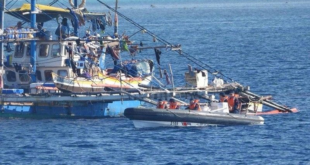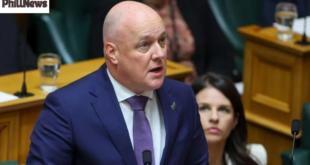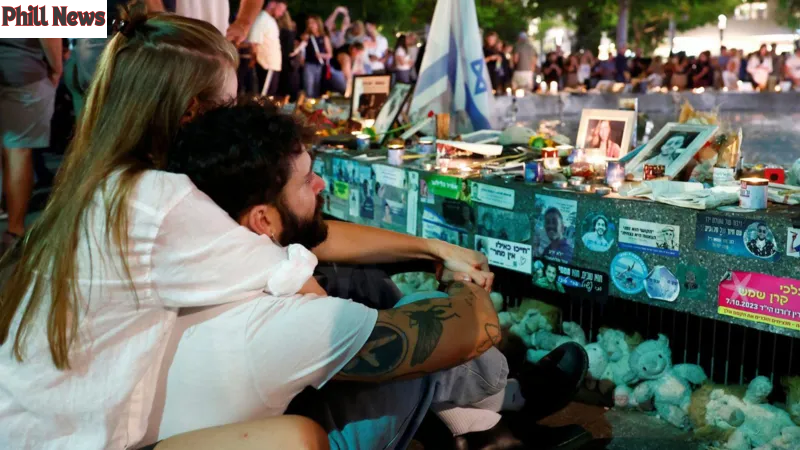
As fighting continues in the Gaza Strip and Lebanon, Israel held a ceremony on October 7, 2023, to commemorate the victims of Hamas’ mass killings and kidnappings.
A year after the attacks that left about 1,200 people dead and 251 hostages taken, Israeli Prime Minister Benjamin Netanyahu said Israeli forces would “change the security reality” in the region and vowed to prevent such attacks in the future.
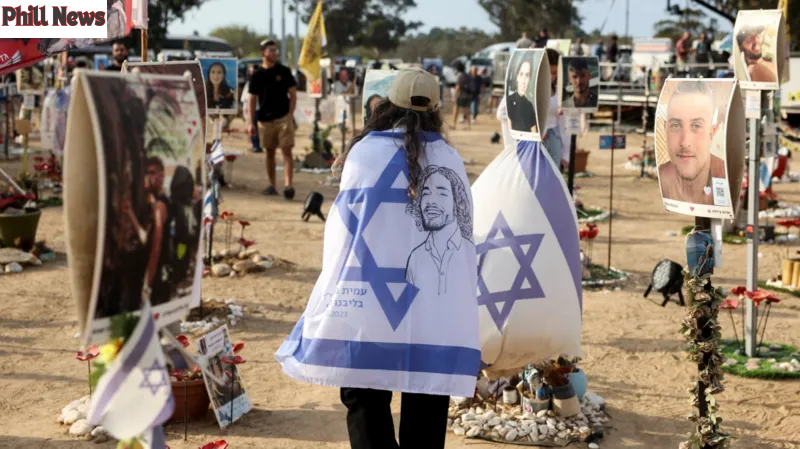
According to the Hamas-controlled Ministry of Health, about 42,000 people have been killed in Israeli attacks in the Gaza Strip since October 7.
During the commemoration, Israel announced that it had intercepted more than 100 rockets fired by Hezbollah in Lebanon, as well as projectiles fired by the Houthis in Yemen and Hamas in the Gaza Strip.
1. One year since October 7, Israeli kibbutzim struggle to recover
2. Gaza on a map: How a year of war has dramatically changed the situation
3. Jeremy Bowen’s analysis – Is the Middle East on the brink of a major war?
4. Hamas hostages: Stories of those abducted from Israel
5. Last October, Hamas gunmen breached the Gaza border fence and rampaged through nearby Israeli villages, kibbutzim, military garrisons, and the Nova music festival.
On Monday, hundreds of the dead and dozens of family members of those held hostage at the festival gathered at the site from early morning for the first memorial service of the day.
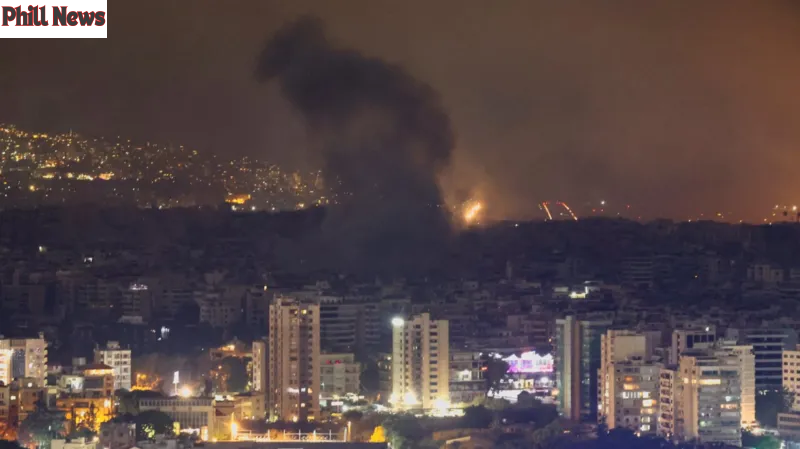
Holding photos of their loved ones, they listened to the festival’s final song, followed by a minute’s silence by Israeli President Isaac Herzog at 6:29 a.m., the time the attack began.
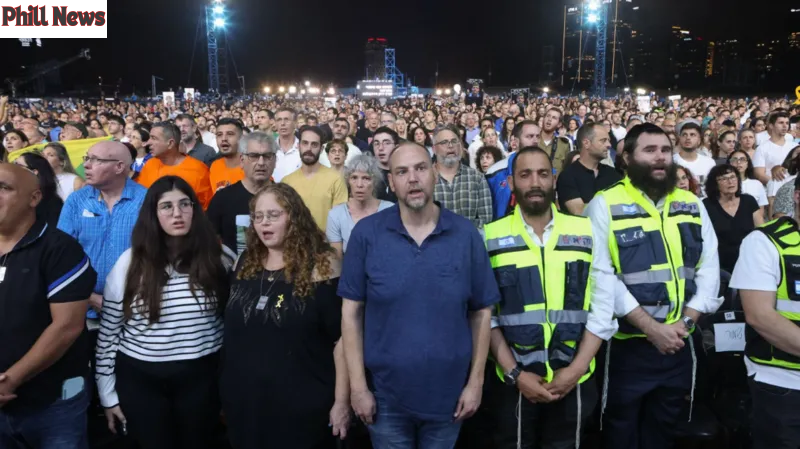
Smaller incidents also occurred in nearby communities, which Hamas gunmen also attacked.
Elsewhere, Prime Minister Netanyahu visited Jerusalem’s Iron Sword Memorial, which commemorates the victims of the Hamas attack, and lit a candle to “memorialize the hostages who fell in battle.” Israeli families gathered in Tel Aviv’s largest park for what they described as a memorial service for the victims instead of the government’s official memorial service.
Some of Israel’s most popular singers gave emotional performances as images of the victims played on screens.
The stage was decorated with items symbolizing the attacks, including burnt and broken cars from the Nova music festival and children’s bikes and swings from Kibbutz Be’i.
Outside Israel, US President Joe Biden joined other heads of state and government in condemning the “unspeakable brutality” of the Hamas attack a year ago.
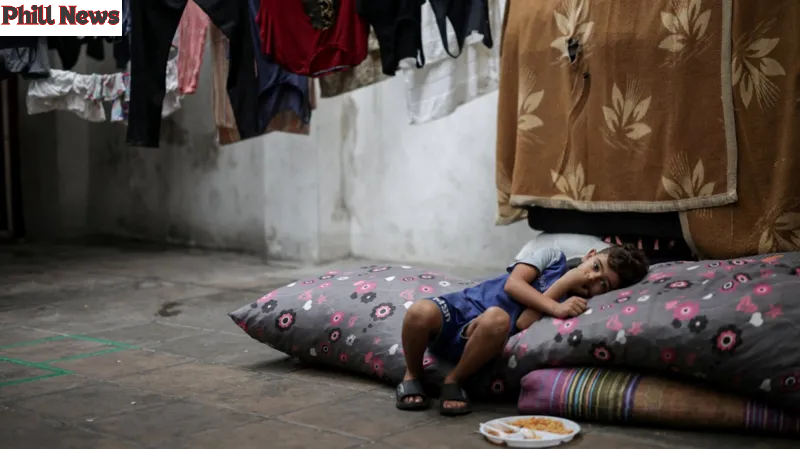
He also expressed horror at the war that followed, saying “too many civilians have suffered, too many.” 4,444 4,444 Mourners also gathered at vigils worldwide, including in Australia, South Africa, Germany and the United States.
In the UK, Sir Keir Starmer told the House of Commons that he supported Israel’s right to defend itself. But the Prime Minister insisted there was no military solution to the current crisis and called on all sides to “stand down”.
But while the commemorations took place, a larger conflict raged in the region.
The Israeli military said Hezbollah had fired more than 130 rockets across the border from Lebanon. Most were shot down, but some struck the cities of Haifa and Tiberias.
Previously, Hamas had also fired rockets from Gaza at Tel Aviv. The military said a ballistic missile had been fired from Yemen towards Israel but was intercepted.
Throughout the day, Israel conducted several airstrikes and ground incursions into Lebanon.
The Israeli military said it was expanding its operations against Hezbollah and warned residents in southern Lebanon not to use boats in the sea or on rivers south of the Awali River. Three weeks of intense Israeli and other attacks have left more than 1,400 people dead and another 1.2 million displaced in Lebanon, according to Lebanese officials.
Hezbollah, the Shiite Muslim political, military, and social organization with great influence in Lebanon, remained defiant despite a series of devastating setbacks in recent weeks, including the killing of most of its leaders and senior military commanders.
On Monday, the group asserted that it was “confident in the ability of our resistance to counter Israeli aggression.”
The Israeli government, which classifies Hezbollah as a terrorist organization, has promised to allow tens of thousands of displaced people to safely return to their hometowns near the Lebanese border after a year of cross-border fighting resulting from the Gaza war.
Hostilities have been steadily escalating since Hezbollah began firing rockets into northern Israel on October 8, 2023, a day after its ally Hamas carried out a deadly attack in southern Israel.
 Phill News Entertainment – Phill News
Phill News Entertainment – Phill News
